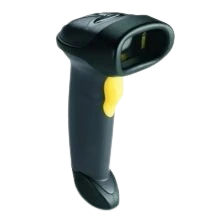Get A Quote
BIS Registration for USB Driven Barcode Readers IS 13252 (Part 1): 2010

In today's fast-paced digital world, accuracy,
security, and efficiency in data capture are essential. USB-driven barcode
readers, barcode scanners, iris scanners, and optical fingerprint scanners play
a crucial role in various industries, including retail, healthcare, and
security. However, ensuring their safety and performance is equally important.
That’s where BIS registration for USB-driven barcode
readers comes into play.
Introduction to CRS Certification for Scanners
BIS CRS (Compulsory Registration Scheme)certification for USB-driven barcode readers, barcode scanners, iris
scanners, and optical fingerprint scanners is mandatory in India complying
with IS 13252 (Part 1): 2010, the Indian standard for USB-driven barcode
readers established by the Bureau of Indian Standards (BIS). Obtaining this
certification enhances consumer trust, as it verifies that the products are
safe and reliable.
Why is CRS Certification Necessary for Scanners?
Obtaining BIS CRS for USB-driven barcode readers is crucial for manufacturers and distributors for several reasons:
Regulatory Compliance: Certification confirms adherence to national safety and performance standards, reducing risks associated with operational failures and inaccuracies.
Consumer Confidence: Certified products assure users of quality and safety, fostering trust and reliability in the market.
Market Access: BIS certification simplifies entry into the Indian market, giving manufacturers a competitive edge.
Operational Safety: Ensures devices operate efficiently without interference or malfunctioning, enhancing overall system reliability.
Overview of Indian Standard IS 13252 (Part 1): 2010 for Scanners
The Indian standard for USB barcode readers, IS 13252 (Part 1): 2010, lays down critical safety and performance requirements for scanners. This includes:
Electrical safety: Preventing hazards related to insulation, overheating, and short circuits.
Performance reliability: Ensuring accurate and efficient data capture.
Durability testing: Assessing longevity under operational stress.
Environmental testing: Evaluating functionality in different climatic conditions.
Electromagnetic Compatibility (EMC) testing: Ensuring scanners do not interfere with other electronic devices.
BIS Registration Process for Scanners
The BIS registration process differs slightly for domestic and foreign manufacturers but broadly follows these steps:
For Foreign Manufacturers:
- Nominate an Indian Representative: A foreign manufacturer must appoint an Indian Representative with a valid business presence in India to handle the registration process for FMCS Certification.
- Online Application Submission: The representative submits an application via the BIS portal, ensuring all details are accurate.
- Sample Testing: Scanners samples are tested in a BIS-approved laboratory for compliance with IS 13252 (Part 1) : 2010.
- Submit Complete Application: The application, along with test reports and required documents, is submitted online or in hard copy.
- BIS Verification: The BIS reviews documents and may conduct factory inspections.
- Grant of License: Upon successful verification, the BIS grants a license, allowing the use of the CRS mark.
For Domestic Manufacturers:
- Submit Online Application: Domestic manufacturers directly apply on the BIS portal to begin the registration process.
- Sample Testing: Like foreign manufacturers, samples are tested at a BIS-recognized lab.
- Submit Application: A complete application, including test reports, is submitted to the BIS.
- Verification: The BIS reviews documents and may inspect the manufacturing facility.
- License Grant: After successful verification, the BIS issues a license for using the CRS mark.
Documents Required for BIS Certification
Below is a comprehensive checklist of documents needed for BIS registration:
General Documents:
● Filled CDF/CCL forms.
● BIS application form.
● Business License (original + English translation).
● Scope of Business License (original + English translation).
● ISO Certification of the manufacturing unit.
● Product marking label details.
Additional Documents for Foreign Manufacturers:
● Authorization letter (if the signatory isn’t the manufacturing head).
● Trademark certificate.
● Indian Representative's registration proof.
● Photo ID of the authorized representative.
Technical Documents:
● User manual or technical specification sheet.
● Test reports from BIS-approved laboratories.
Conclusion
Navigating the BIS registration process can be challenging, but expert assistance can make it smooth and hassle-free. EVTL India, a leader in regulatory compliance, offers end-to-end services for BIS registration for USB driven barcode readers and other electronic products. From product testing coordination to documentation and application submission, our team ensures that manufacturers achieve compliance effortlessly.
By securing BIS CRS for USB driven barcode readers, manufacturers can enhance product credibility, gain market acceptance, and ensure safety and reliability for end-users. Contact EVTL India today for expert guidance on obtaining your BIS certification efficiently and confidently.
Free Call Back
Latest News & Update
🚀 Breaking News: New software update available for all users!
💡 Latest Feature: Introducing AI-powered automation tools.
📅 Upcoming Event: Join us for the webinar on September 30th.
🕒 Support Hours: Expanded customer support hours next week.
⚙️ Tech Tip: Learn how to maximize productivity with our latest tools.
Why Choose EVTL INDIA
Expertise in Indian Regulatory Standards
End-to-End Support
Trusted by Top Indian & Global Brands
Fast Processing & Transparent Pricing
Strong Liaison with Indian Authorities
Company Profile














